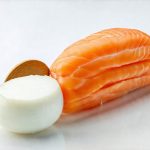Indigestion, a remarkably common experience, often feels like a minor inconvenience – a temporary discomfort after eating. But its effects can ripple beyond just an upset stomach, frequently leading to a noticeable decrease in appetite. This isn’t always immediately intuitive; we tend to associate loss of appetite with illness or disease, rather than something as everyday as struggling to digest a meal. However, the connection is strong and deeply rooted in how our bodies are designed to function. The intricate interplay between digestion, hormones, and neurological signals ensures that hunger and satiety are finely tuned responses, and disruptions to any part of this system can throw off the balance, resulting in temporary disinterest in food.
The reason for this lies in the body’s protective mechanisms. When indigestion occurs – whether from overeating, eating too quickly, or consuming triggering foods – it signals a state of digestive stress. The body, prioritizing restoration and efficient functioning, temporarily downshifts its focus on acquiring more energy through food intake. This isn’t a deliberate act of stubbornness; it’s a physiological response aimed at allowing the digestive system to recover without being further burdened. Understanding this process can alleviate anxiety surrounding temporary loss of appetite following indigestion and guide us towards supportive practices that facilitate both digestion and renewed hunger cues.
The Physiological Link Between Indigestion and Appetite Suppression
Indigestion isn’t simply about feeling uncomfortable; it’s a complex cascade of events within the digestive system. When food isn’t broken down efficiently, or if there’s excessive gas production, bloating, heartburn, or acid reflux, it sends signals to the brain that disrupt normal hunger pathways. These signals aren’t necessarily ‘painful’ in the traditional sense but are perceived as discomfort – enough to discourage further eating. The vagus nerve plays a crucial role here. This long cranial nerve connects the gut to the brain and acts as a two-way communication highway. When indigestion occurs, the vagus nerve transmits information about digestive distress back to the hypothalamus, the part of the brain responsible for regulating appetite and satiety.
The hypothalamus responds by releasing hormones that suppress hunger. Specifically, it may increase levels of hormones like cholecystokinin (CCK) and peptide YY (PYY), which signal fullness even before we’ve eaten sufficient amounts. Simultaneously, the production of ghrelin – often called the “hunger hormone” – can be reduced. This hormonal shift effectively tells our bodies that we are not in a state to receive more food, even if logically we know we should eat. It’s important to note this isn’t the same as feeling nauseous and actively wanting to avoid food due to illness; it’s more of a muted or dampened desire for eating, stemming from the body prioritizing digestive recovery.
Furthermore, the sensation of fullness after indigestion can be prolonged. A normally functioning digestive system would eventually clear out the problematic food, allowing hunger cues to return. However, when digestion is impaired, food lingers longer in the stomach and intestines, continuing to trigger those satiety signals and delaying the onset of genuine hunger. This creates a vicious cycle where discomfort leads to appetite suppression, which then further hinders efficient digestion.
The Role of Gut Microbiome Disruption
The gut microbiome – the trillions of bacteria residing in our digestive tract – is increasingly recognized as a key player in both digestion and appetite regulation. Indigestion can disrupt this delicate ecosystem, leading to imbalances known as dysbiosis. – An unhealthy microbiome has fewer beneficial bacteria and more harmful ones. – This imbalance affects how efficiently we digest food, potentially exacerbating indigestion symptoms. – It also impacts the production of neurotransmitters like serotonin, which influences mood and appetite.
Dysbiosis can lead to increased inflammation in the gut, further contributing to discomfort and a reduced desire to eat. The inflammatory response itself can suppress appetite by activating immune pathways that signal the brain about digestive distress. Moreover, certain bacterial imbalances may increase gas production, bloating, and other uncomfortable symptoms associated with indigestion, reinforcing the aversion to food. Restoring a healthy gut microbiome through dietary changes (such as consuming probiotic-rich foods) and potentially prebiotic supplements can support improved digestion and ultimately help restore normal appetite regulation. If you suspect your gut health is compromised, it might be wise to consider how mild symptoms can lead to early-stage testing for a more accurate diagnosis.
Stress and Its Impact on Digestion & Appetite
The connection between stress and digestive issues is well established. When we’re stressed, our bodies activate the “fight or flight” response, diverting blood flow away from the digestive system towards muscles and vital organs needed for immediate action. This slows down digestion, potentially leading to indigestion and a range of associated symptoms. Chronic stress can have an even more profound impact, contributing to conditions like irritable bowel syndrome (IBS) which frequently involve both indigestion and appetite fluctuations.
Stress also impacts our hormonal balance. Cortisol, the primary stress hormone, can interfere with the normal functioning of the digestive system and suppress appetite. Furthermore, emotional eating – using food as a coping mechanism for stress – can often lead to overeating and subsequent indigestion, creating another cycle where discomfort diminishes hunger. Managing stress through techniques like mindfulness, meditation, yoga, or simply getting enough sleep is crucial not only for overall well-being but also for supporting healthy digestion and appetite regulation. It’s important to be mindful of how external factors, such as traveling south, can impact your gut health and contribute to these issues.
Dietary Factors Contributing to Indigestion and Appetite Loss
Certain dietary choices can significantly increase the likelihood of indigestion and subsequent loss of appetite. – High-fat foods take longer to digest, putting a strain on the digestive system. – Spicy foods can irritate the stomach lining, leading to heartburn and discomfort. – Carbonated beverages contribute to bloating and gas production. – Excessive caffeine or alcohol can disrupt digestion and exacerbate symptoms.
Fast eating is another major culprit. When we eat too quickly, we don’t chew our food properly, making it harder for the digestive system to break down. This can lead to indigestion, bloating, and a feeling of fullness even before we’ve finished our meal. Similarly, large portion sizes overwhelm the digestive system, increasing the risk of discomfort and appetite suppression. Making mindful dietary adjustments – such as opting for smaller portions, chewing food thoroughly, avoiding trigger foods, and prioritizing easily digestible options – can significantly improve digestion and support a healthy appetite. Late-night eating habits can also contribute to digestive discomfort, so it’s best to avoid heavy meals before bed. It is also worth considering if cold medications are contributing to your bloating. If you suspect liver congestion might be playing a role, it’s best to consult with a healthcare professional for guidance. Finally, consider if nasal congestion is contributing to air swallowing and digestive issues.
It’s important to remember that temporary loss of appetite following indigestion is generally not a cause for concern. It’s the body’s natural way of protecting itself and allowing the digestive system to recover. However, if the loss of appetite persists for an extended period, or if it’s accompanied by other concerning symptoms like severe abdominal pain, nausea, vomiting, or unintentional weight loss, seeking medical advice is essential to rule out any underlying health conditions. Digestive rhythm loss can also contribute to these issues so establishing a routine is important.


















